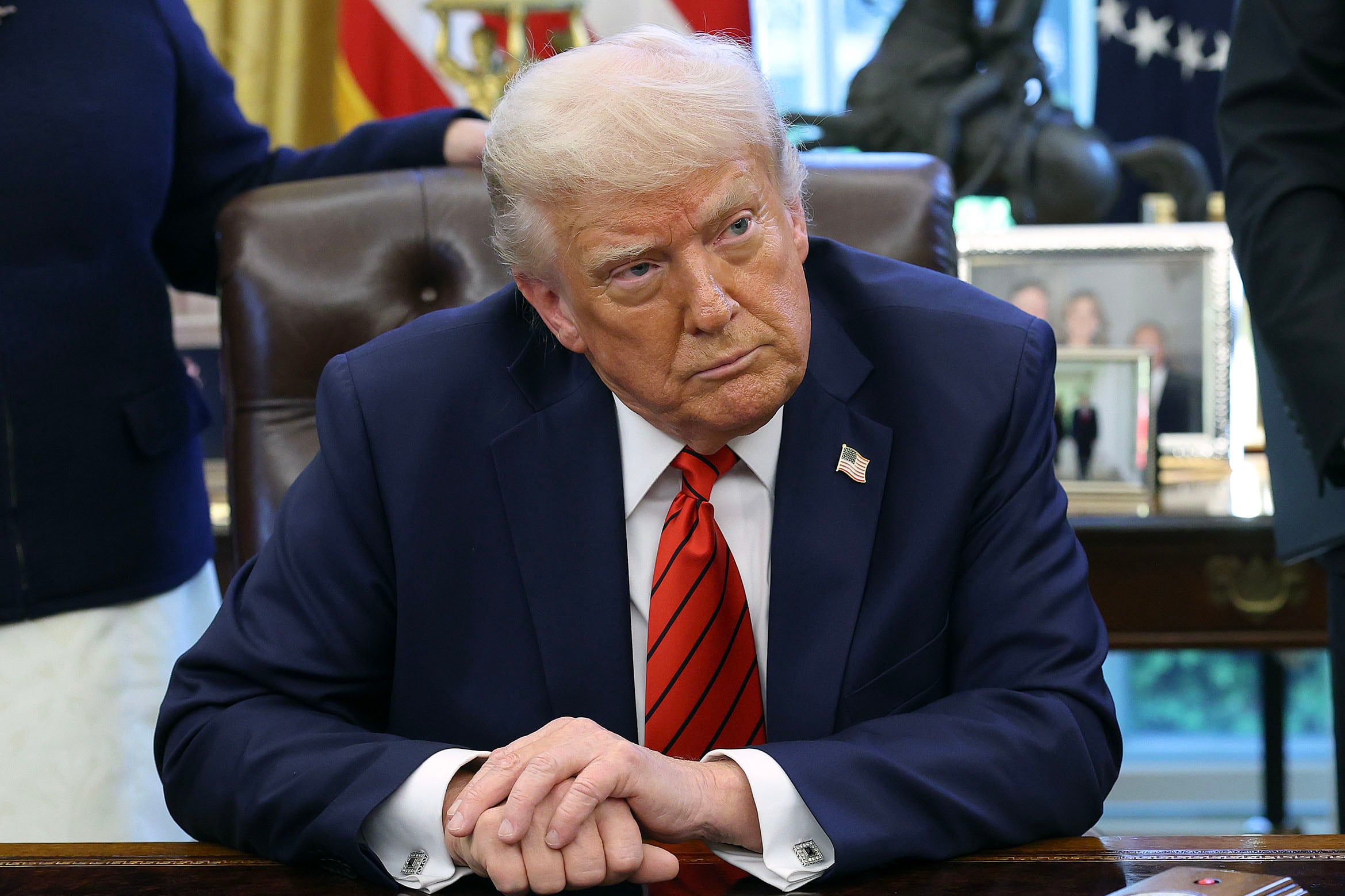Votebeat is a nonprofit news organization reporting on voting access and election administration across the U.S. Sign up for Votebeat’s free national newsletter here.
What happened?
A federal judge Thursday issued a preliminary injunction halting some provisions of the sweeping executive order on elections President Donald Trump issued in March.
The injunction blocks his direction to the U.S. Election Assistance Commission to take steps to require documented proof of citizenship from people registering to vote, and a provision requiring federal voter registration agencies to “assess” the citizenship of individuals who receive public assistance before providing them a voter registration form.
“Our Constitution entrusts Congress and the States — not the President — with the authority to regulate federal elections,” Judge Colleen Kollar-Kotelly wrote in a 120-page opinion.
Citing deliberations among the original framers of the Constitution, she wrote: “Executive regulatory authority over federal elections does not appear to have crossed the Framers’ minds.”
Kollar-Kotelly declined to halt some other provisions of the executive order, including one telling the U.S. Justice Department to enforce a ballot receipt date of Election Day against states and ordering the EAC to withhold federal funds from states that do not comply. She said the challenges to those provisions were “premature” or needed to be presented by the states themselves. She noted that states were filing those challenges in separate cases.
What’s the dispute?
Multiple nonprofit groups and Democratic Party committees sued Trump, the EAC, and other federal agencies over the order he signed in March calling for broad changes in how elections are administered. The plaintiffs argue that the Constitution does not grant the president authority to set rules for elections.
The lawsuits challenge multiple provisions of the executive order, including one that directs the EAC to add a documentary proof-of-citizenship requirement to the federal voter registration form; another requiring the agency to withhold federal funds from states that don’t comply with its requirements; and one prohibiting states from accepting mail ballots postmarked before Election Day, but received afterwards.
The Justice Department argued the order is legal. At a court hearing earlier this month, Michael Gates, a deputy assistant attorney general in the department’s Civil Rights Division, who represented the government at a hearing Thursday, said the provisions of the executive order that are under challenge — including the one concerning a documented proof-of-citizenship requirement — are legal under existing federal laws.
He also argued the plaintiffs hadn’t suffered harm because the government had not yet taken action.
Who are the plaintiffs?
Two of the lawsuits were filed by a collection of nonprofit groups, including the League of United Latin American Citizens, the League of Women Voters, the NAACP, and others. Another was filed on behalf of Democratic national party committees and leadership. Additional lawsuits challenging provisions in the executive order are pending in other federal courts, including one by Democratic attorneys general in 19 states and another by the states of Oregon and Washington.
What are they asking for?
The lawsuits by the Democratic and nonprofit groups were filed in U.S. District Court in Washington, D.C., and assigned to Kollar-Kotelly, who consolidated them. Kollar-Kotelly was nominated in 1997 by former President Bill Clinton. The lawsuits asked her to stop the government from implementing or enforcing the provisions of the executive order under challenge, and, ultimately, to find them unconstitutional.
What happens now?
The White House did not immediately respond to a request for comment on the preliminary injunction. In response to a request for comment, a spokesman for the Justice Department said the agency “will continue to fight in court to defend President Trump’s agenda.” The lawsuits remains pending before Kollar-Kotelly.
Read more Votebeat coverage of the executive order on elections:
- Judge hears challenges to Trump’s executive order on regulating elections
- Trump orders an overhaul of how elections are run, inviting a likely legal challenge
- New Trump order targets barcodes on ballots. Why? And what will that mean?
- With Trump’s executive order, thousands of military voters could see their rights curtailed
- First lawsuits against Trump’s election order cite text of Constitution
- Democratic attorneys general sue Trump over elections executive order
Update: April 24, 2025, 5:45 p.m.: This story has been updated to include Justice Department comment.
Carrie Levine is Votebeat’s interim editor-in-chief and is based in Washington, D.C. She edits and frequently writes Votebeat’s national newsletter. Contact Carrie at clevine@votebeat.org.





